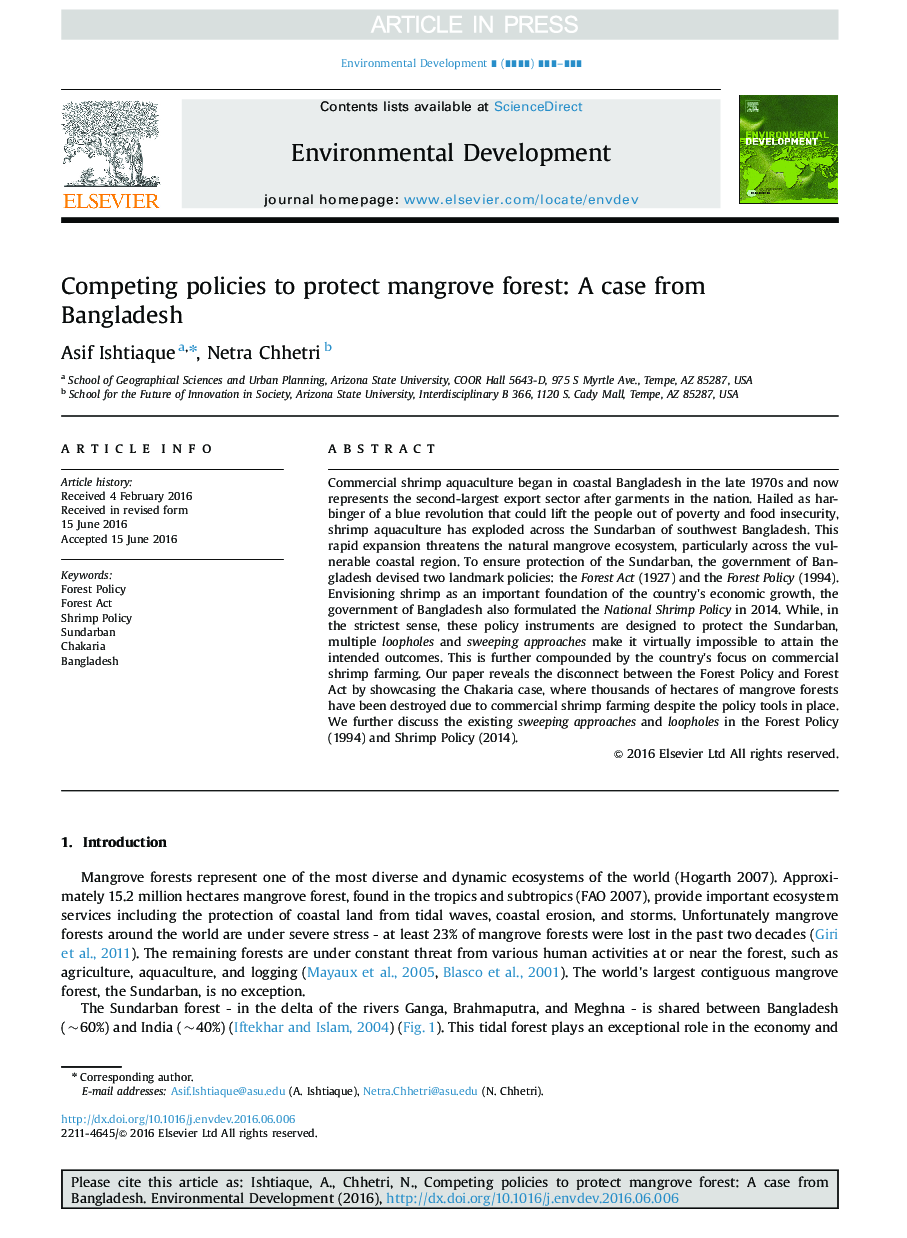| کد مقاله | کد نشریه | سال انتشار | مقاله انگلیسی | نسخه تمام متن |
|---|---|---|---|---|
| 6302900 | 1618082 | 2016 | 9 صفحه PDF | دانلود رایگان |
عنوان انگلیسی مقاله ISI
Competing policies to protect mangrove forest: A case from Bangladesh
ترجمه فارسی عنوان
سیاست های رقابتی برای محافظت از جنگل های جنگلی: یک مورد از بنگلادش
دانلود مقاله + سفارش ترجمه
دانلود مقاله ISI انگلیسی
رایگان برای ایرانیان
موضوعات مرتبط
علوم زیستی و بیوفناوری
علوم محیط زیست
بوم شناسی
چکیده انگلیسی
Commercial shrimp aquaculture began in coastal Bangladesh in the late 1970s and now represents the second-largest export sector after garments in the nation. Hailed as harbinger of a blue revolution that could lift the people out of poverty and food insecurity, shrimp aquaculture has exploded across the Sundarban of southwest Bangladesh. This rapid expansion threatens the natural mangrove ecosystem, particularly across the vulnerable coastal region. To ensure protection of the Sundarban, the government of Bangladesh devised two landmark policies: the Forest Act (1927) and the Forest Policy (1994). Envisioning shrimp as an important foundation of the country's economic growth, the government of Bangladesh also formulated the National Shrimp Policy in 2014. While, in the strictest sense, these policy instruments are designed to protect the Sundarban, multiple loopholes and sweeping approaches make it virtually impossible to attain the intended outcomes. This is further compounded by the country's focus on commercial shrimp farming. Our paper reveals the disconnect between the Forest Policy and Forest Act by showcasing the Chakaria case, where thousands of hectares of mangrove forests have been destroyed due to commercial shrimp farming despite the policy tools in place. We further discuss the existing sweeping approaches and loopholes in the Forest Policy (1994) and Shrimp Policy (2014).
ناشر
Database: Elsevier - ScienceDirect (ساینس دایرکت)
Journal: Environmental Development - Volume 19, July 2016, Pages 75-83
Journal: Environmental Development - Volume 19, July 2016, Pages 75-83
نویسندگان
Asif Ishtiaque, Netra Chhetri,
